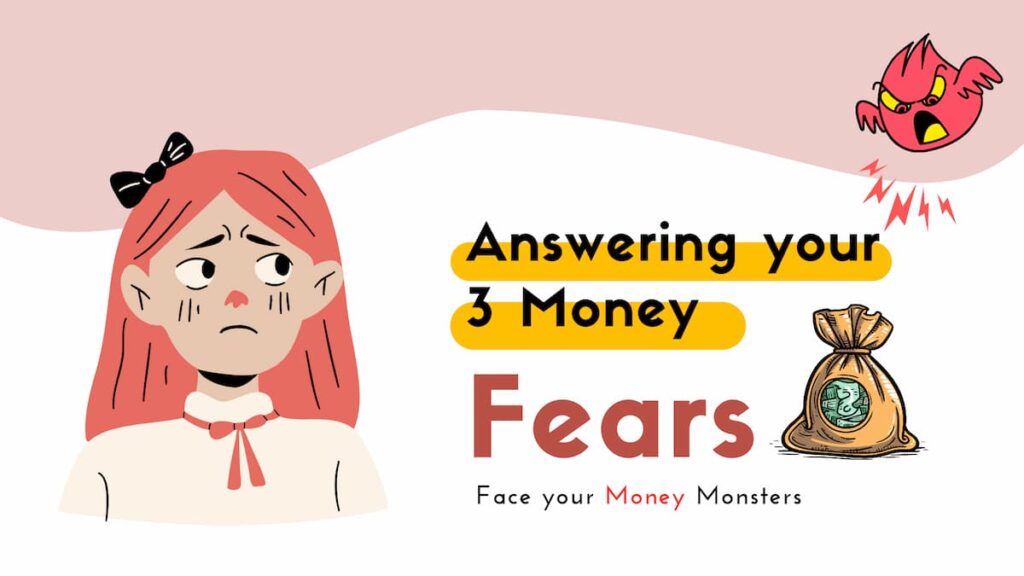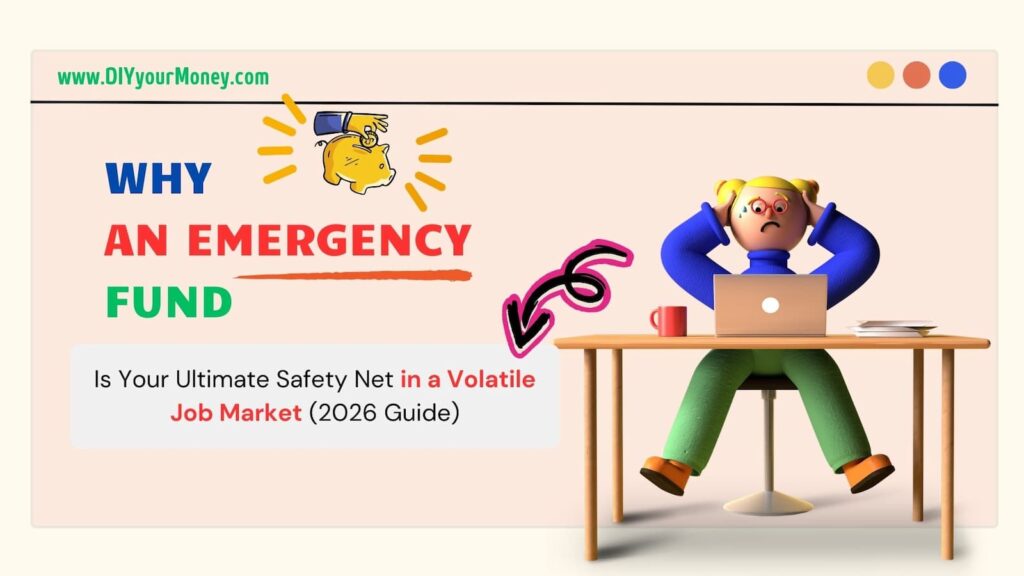🧌Face your Money monsters..
Money—an essential yet elusive commodity. We spend countless hours working, striving, and dreaming of earning more. Everyone is thinking about making more, more than yesterday, more than friends, more than their parents, more than a neighbor, just more. Yet, amidst this pursuit, a nagging fear often lurks the fear of losing it all. This pervasive anxiety can significantly impact our financial well-being and overall happiness. In this post, I am trying to face some of the most common money fears and offer practical strategies to overcome them.
1️⃣ Addressing the Fear of "Will I Have Enough?"
One of the most pervasive fears about money is uncertainty about having sufficient funds for the future. While it’s impossible to predict every financial need, we can take proactive steps to build a strong financial foundation.
"Wealth is not about having a lot of money. It's about having a lot of options."
- Chris Rock Tweet
Understanding our Spending Patterns:
A crucial first step is to gain a clear understanding of our current spending habits. By tracking our expenses across various categories, we can determine our today’s needs.
Utilizing the FIRE Formula:
The FIRE (Financial Independence, Retire Early) formula can provide valuable insights into the amount we’ll need to save for retirement. By multiplying your yearly expenses by 25, you can estimate the total savings required to achieve financial independence.
For example, if you spend $500 on groceries monthly, you might need approximately $150,000 invested to sustain that spending in retirement.
Overcoming Anxiety:
By addressing this fear through careful planning and financial literacy, I was able to alleviate my anxiety about my future financial security. Knowing how much we need to save can provide a sense of control and empower us to make informed decisions about our financial journey.
2️⃣ Addressing the fear of "What if I lose my Job/Income?"
Many of us rely on our day jobs for our primary income. What if we were to lose our jobs unexpectedly? Could we survive financially for several months without alternative employment?
"An emergency fund is like a safety net. It's there to catch you if you fall, but it's even better if you never need to use it."
- A wise man Tweet
To mitigate this risk, building an emergency fund is essential.
The Importance of an Emergency Fund:
An emergency fund acts as a financial safety net, providing a cushion during unexpected job losses or financial setbacks. Aim for 3-6 months of living expenses to create a solid foundation.
Building a Strong Emergency Fund:
- Prioritize Savings: Make saving for your emergency fund a top priority in your financial plan.
- Set Realistic Goals: Determine a suitable amount to save each month and stick to your plan.
- Automate Savings: Consider setting up automatic transfers to your emergency fund to make saving effortless.
Benefits of an Emergency Fund:
Beyond providing financial security, an emergency fund can also:
- Reduce Stress: Knowing you have a financial cushion can alleviate anxiety and promote peace of mind.
- Enable Career Flexibility: An emergency fund can give you the confidence to take risks or pursue new career opportunities without fear of financial hardship.
- Improve Overall Well-being: Financial stability can positively impact our mental and emotional health.
The best goal for the emergency fund would be to cover 18-24 months so that we can truly feel free from the pressure and need of having a job. By building a robust emergency fund, we can significantly reduce the fear of job loss and gain greater financial resilience. I am not losing my sleep over this fear.
Learn more: Emergency Fund: A way of worry free life. (What, why, and how)
3️⃣ Addressing the fear of "Can I maintain my lifestyle?"
The allure of luxury can make it difficult to return to a simpler lifestyle once you’ve experienced it. Maintaining a sustainable lifestyle requires careful attention to spending habits. The so-called lifestyle creep can make it difficult to distinguish between wants and needs.
"Money is a terrible master, but a wonderful servant."
- P.T. Barnum Tweet
Understanding our needs and wants:
We all want to be happy and to become happy we seldom need new things. it’s crucial to distinguish between true needs and desires. When wants overshadow needs, we risk falling into the trap of lifestyle creep.
Don’t fall for Advertisements and social media. Ads and Social media often promote products that cater to our desires, creating a constant sense of missing out. It’s essential to resist the urge to compare ourselves to others and focus on building a lifestyle that aligns with our values and needs. Gradual improvements and mindful spending are key to avoiding the pitfalls of lifestyle creep.
Afford it before you buy lifestyle:
This doesn’t mean we must starve our wants and never taste the luxury. My approach is to ensure I can afford a purchase before making it, avoiding unnecessary debt.
- Don’t buy your lifestyle on credit cards or EMIs
- BUY only when you know that you can pay in cash.
- Once you own it, nobody can steal it from you physically and mentally.
- Increase your lifestyle slowly and make sure that whatever happens next nobody can take that away from you.
- Not being in debt to afford that lifestyle is the best way to do it.
Conclusion
There is no universal guideline or magic formula for answering all of life’s financial questions. Personal finance is highly individual, and we must confront our own fears and challenges. Addressing my money anxieties has helped me assess whether I’m on the right financial path and feel confident about my future.
How do you approach these money fears? Are there any specific financial challenges you’re currently facing?








